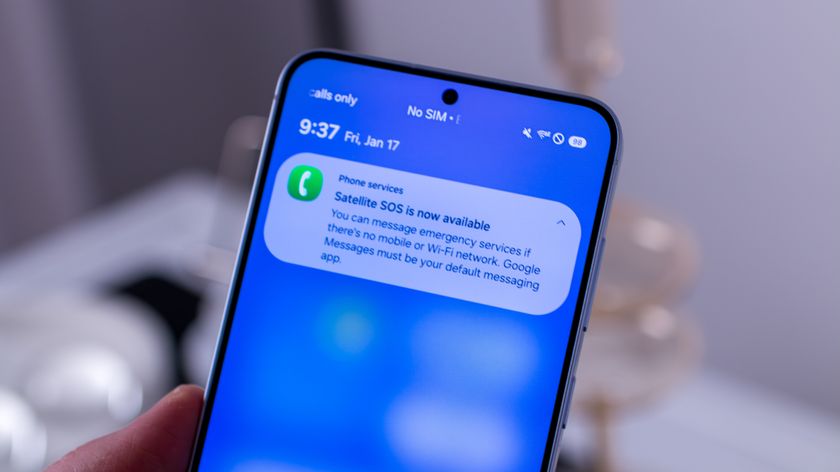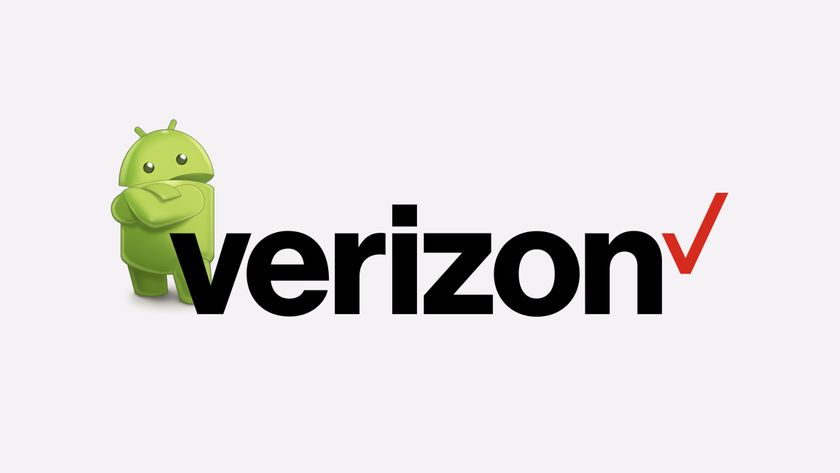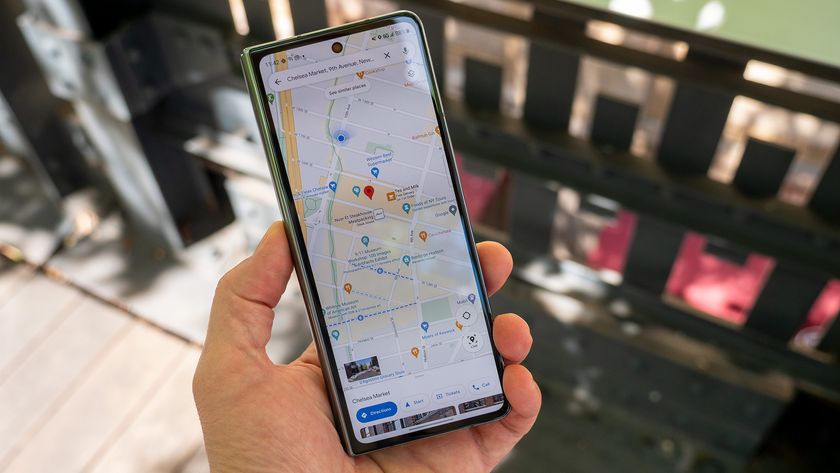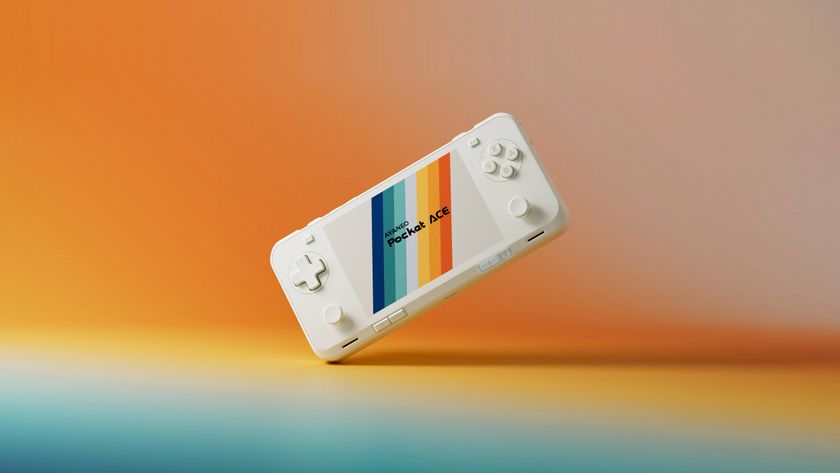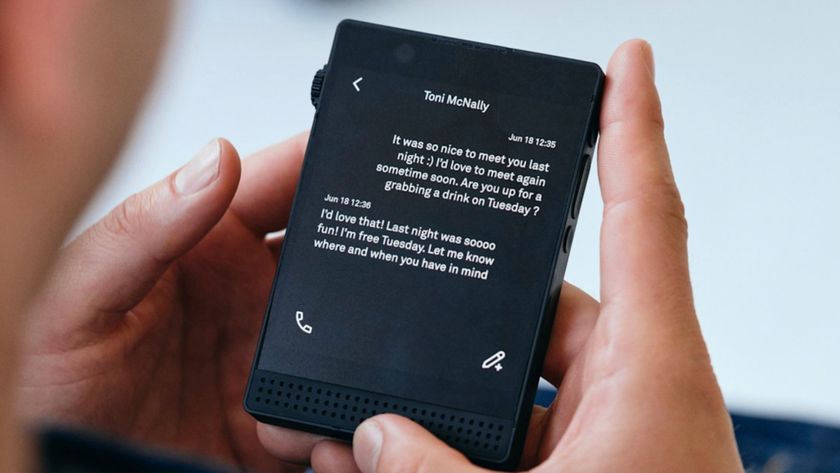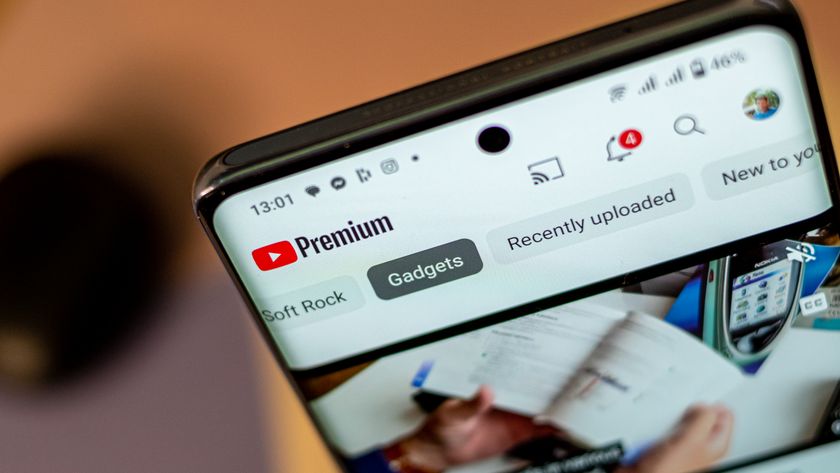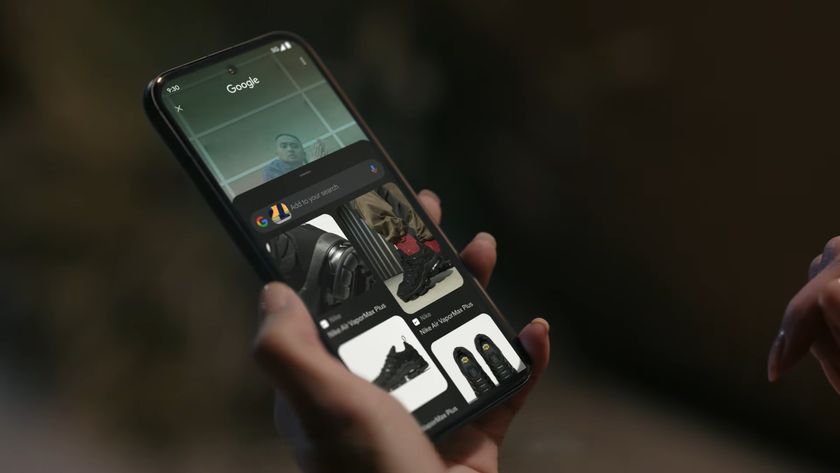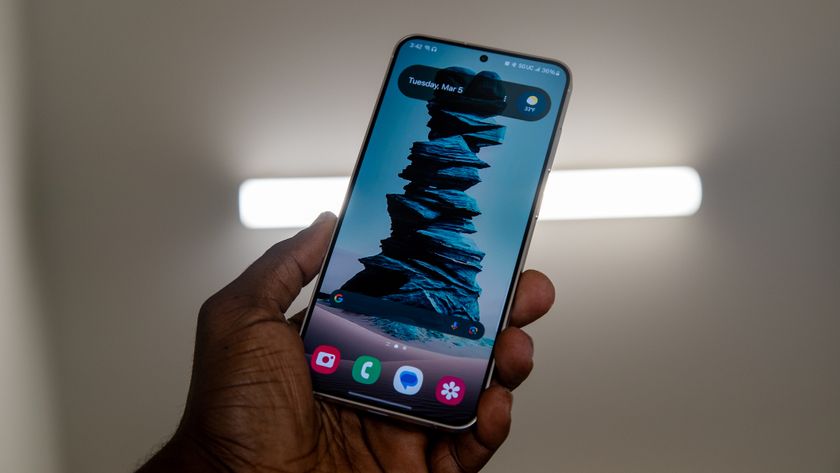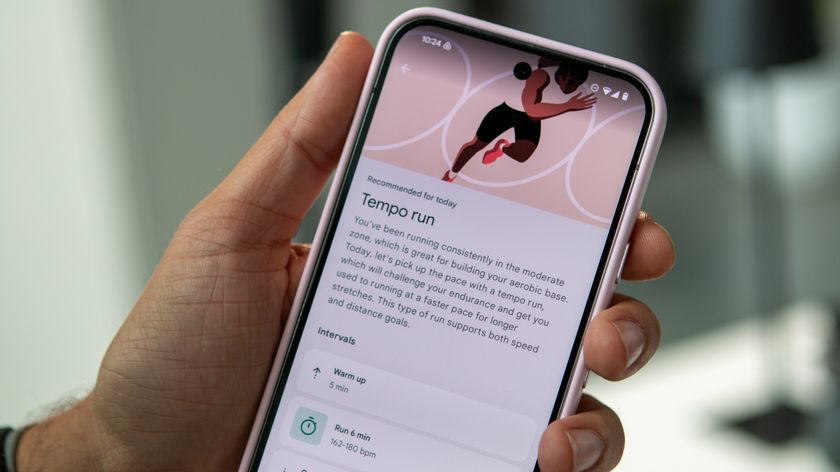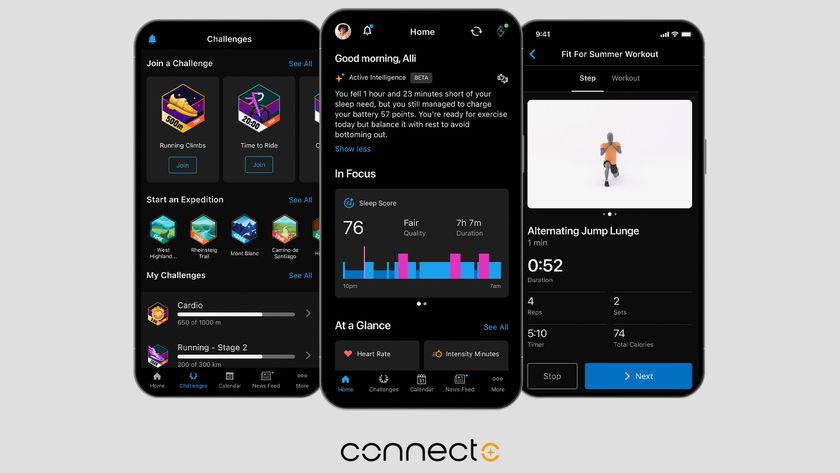Can mobile gaming kill the consoles? - Talk Mobile

Presented by Blackberry
Talk Mobile Gaming
Can mobile gaming kill the consoles?
Five years ago if you'd told anybody mobile phones and tablets stood even the chance of challenging dedicated home gaming consoles, you'd have been laughed out of the living room. After all, the state of the art of mobile back then included the Apple iPhone 3G, BlackBerry Storm, Palm Treo Pro, and HTC G1. Comparing them to the powerhouses that were the Sony PlayStation 3 and Microsoft Xbox 360 - as well as the not-powerful-but-still-enormously-fun Nintendo Wii - would have been ludicrous.
Fast forward to today and the landscape's changed. A whole industry has grown up around mobile gaming, drawing the attention of incredible indies and enormous gaming studios alike. iPhone and Android have marginalized dedicated portable gaming devices like the Sony PSP and Nintendo DS, thanks in no small part to their less expensive, more easily available content, better screens and processors, ubiquitous connectivity, and the simple convenience that comes from convergence. Yet the consoles have endured.
So the question is, can mobile devices make the next generation of consoles - the PS4, Xbox One, and Wii U - the last? Is the very idea as ludicrous today as it was five years ago, or can an argument be made that now, or in the near future, our phones and tablets could killed the big gaming consoles?
Let's get the conversation started!
By Daniel Rubino, Kevin Michaluk, Phil Nickinson & Rene Ritchie
Be an expert in 5 minutes
Get the latest news from Android Central, your trusted companion in the world of Android
Play
- Daniel: Mobile gaming has come a long, long way

- Rene: Capturing the hardcore gamers

- Kevin: Where the consoles still kill

- Phil What's next for mobile gaming

Can mobile kill consoles?
Articles navigation
- Mobile's improvements
- Video: Anders Jeppsson
- Hardcore gamers
- Podcast: Jordan Mechner
- Consoles still kill
- What's next
- Video: Guy English
- Conclusion
- Comments
- To top

Daniel Rubino Windows Phone Central
Mobile gaming has come a long, long way
High-end smartphones in 2013 have all but pushed out the major mobile gaming devices such as Sony PlayStation Portable and Nintendo DS. Indeed, Sony's anticipated PSP successor, the PlayStation Vita, has barely cracked ten million in sales since its debut over a year ago. While those platforms are far from dead, their popularity has certainly dwindled as smartphones with advanced hardware have hit the market.
High-end smartphones in 2013 have all but pushed out the major portable gaming devices from Sony and Nintendo.

The rise of smartphones
Starting with the introduction of the iPhone in 2007, smartphone sales have exploded, setting new records every quarter. In its first year of availability, Apple sold just over five million iPhones. Last year, Apple sold just over 138 million. 37.4 million more were sold last quarter alone.
Android activations have likewise exploded since the 2008 release of the HTC Dream. At the 2013 Google I/O conference it was announced that global Android device activations had crossed the 900 million mark.
When the original PDA was merged with the cellphone, creating the smartphone, the question naturally became - why carry two devices when you can just carry one? The same occurred with mobile gaming. Will the same hold true for consoles? While smartphones may not pack the same hardware power as consoles, they can make up for their deficiency in raw processing (and the lack of infinite battery life) through other methods, including becoming a second screen to augment console games, or utilizing onboard sensors to create new genres e.g. location-based social activities such as Android's Ingress, or the accelerometer/gyroscope-driven gameplay found in modern mobile racing games.
In that sense, we've seen gameplay come to smartphones that can't easily be duplicated on a console. Moreover, while playing a mass-multiplayer/first person shooter may not be practical on a smartphone, games like Modern Combat 4 have established that higth quality, first person shooters are certainly possible on mobile and are, in fact, enjoyable.

Of course, due to the mobile nature of smartphones, and the time constraints social conventions impose on our use of them - i.e. commuting, bathroom breaks, waiting for a friend - the platform naturally lends itself to simple puzzle games like Angry Birds. Likewise, the rise of short, turn-based games like Draw Something has accelerated. These games might not have been seen as profitable enough for consoles, but have become phenomenally popular on the highly portable, always-connected smartphone.
Logically, however, consoles will always be ahead of smartphones. That's because consoles are simply not subjected to the same physical size, battery life, or storage constraints as mobile devices. Later this year, Sony and Microsoft will be releasing the PS4 and Xbox One, their next-generation console hardware. Based on previous product cycles, those platforms should last the next five to ten years, including minor hardware revisions. Future iterations could support advanced body and facial recognition systems, or so-called Ultra HD/4K high definition displays, things which aren't currently practical on a smartphone.
For mobile to win, consoles don't have to lose.
For mobile to win, consoles don't have to lose. They'll just continue to expand their capabilities. Being able to pick up and play more streamlined experiences that transition between a console and a smartphone is certainly doable today. So is taking a major title game and creating a mobile sub-game that utilizes a smartphone's sensors (GPS, Bluetooth, NFC, cameras, etc.), social-networks and convenience will allow developers to create new avenues of creativity (and monetization). Ultimately, however, the restrictions of smartphone hardware will, like with all human endeavors, push the creative boundaries of the human imagination.
And that is very exciting.


Mobile is adding something to gaming that wasn't there on PC or console before.
- Anders Jeppsson, Head of Global Gaming Category, BlackBerry
Finally, thanks in part to the rise of the iPhone and Android ecosystems - more than half a billion iOS devices have been sold and almost a billion Android devices are out there - smartphones have become a mass commodity. Such wide adoption by consumers from every financial segment means that mobile is now an enticing market for the big gaming houses. No longer will they be catering to a niche but rather the large and growing mainstream.
That transition, which is expected to accelerate in 2013 through 2016, especially in emerging markets, means we will continue to see large development houses shift their resources to mobile. Combined with more powerful hardware, faster LTE networking, better battery efficiencies, and on-board sensors should result in a renaissance in mobile gaming.
Q:
Is mobile gaming good enough for you?
313


Rene Ritchie iMore
Winning the hardcore gamers
Hardcore gamers are a unique breed. Unlike their casual kin, they're not looking for a few moments of interstitial fun, or a few levels of distraction. They're looking for full on, immersive, cinematic, heart-pounding, blood-racing, all-on assault. There's no terrifying space hulk they can't clear, no enemy compound they can't seize, no zombie apocalypse they can't bring to oblivion. And they are, absolutely, to the last frame and note, utterly uncompromising in the experience they demand.
But here's the thing -- you can't carry the LAN with you on your commute, you can't keep a tricked out gaming PC in your pocket, and you can't have the console with you outside your living room. Still, to this day, the more powerful the solution, the less portable that solution. And that's where mobile has its opportunity.
There's nothing more fun than watching your best friend turn into an explosive mist halfway across the battlefield.

Connecting to the big screen
Displaying content from your mobile device on a bigger screen has proven to be a challenge, made even more complicated by competing standards, proprietary systems, and overbearing content protections. Apple offers two forms to export video content from iOS devices to an external display. HDMI adapters allow a direct hardline connection, while AirPlay lets you beam apps and mirror your display to an Apple TV, and through it, to your big screen.
Recent high-end Android and BlackBerry devices have sported micro HDMI or MHL ports. Micro HDMI is simply a smaller version of the 19-pin HDMI connector, while MHL - Mobile High-Definition Link - uses the micro USB port present on most devices to output video. Support for Miracast, a Wi-Fi Direct system for wirelessly broadcasting to compatible televisions, was added to Android 4.2.
Everyone, from casual to hardcore, cares about instant gratification and ego fulfillment. We want to play now and we want to be the best. Just like there's nothing more fun than having the best farm on Facebook, there's nothing more fun than watching your best friend turn into an explosive mist halfway across the battlefield.
So yes, mobile won't be able to pack the power of the PC or console any time soon, nor will its controls likely ever be as precise as the gamepad or full size keyboard, but it can be there for you whenever you want it. Platform owners and game developers just have to develop the right experience. Whether it's Apple and AirPlay, or Android's implementation of the Miracast standard, or BlackBerry and HDMI-out, if next generation mobile's can power Call of Duty, Halo, Bioshock, or any of the other signature hardcore franchises in the living room, and then still provide some window into those worlds, even if more limited, on the go, it gets really interesting.
Platforms like iOS and BlackBerry, and manufacturers like Samsung and NVIDIA, have the most to gain from this, as they have no living room consoles. So, and building transports like Apple TV and Project SHIELD is probably a better model, at least short term. Add to that an absolutely killer next-generation game or two that transcends the the living room for the cloud -- Ingress meets Gears of War, perhaps -- and mobile could just win over even the hardest of the hardcore gamers.

Making great mobile games
Jordan Mechner wrote Karata for the Apple II in 1984, and while computers couldn't handle simultaneous animation and audio back then, Mechner still managed to bring cinematic style to gaming. In 1989, Mechner took it a step further, creating the Prince of Persia franchise and cementing the notion of gaming as story-telling. Flash forward, and Mechner is now bringing his immense talent to bear on mobile with with a brand new vision for Karateka.
Mechner spoke to us about all this, and more on the Debug podcast.
Q:
Will mobile gaming ever be enough for hardcore gamers?
313


Kevin Michaluk CrackBerry
Where the consoles still kill
Look, I'm a huge fan of mobile games, but even I know hardcore gamers don't waste their time on them. They play console or PC games. And there's a good reason for that. In every area other than the casual gaming convenience offered by the portability of a mobile device, consoles still win. Consoles win on emotion and experience, and overall quality and variety of gameplay. However, different gaming experiences appeal to different audiences in different situations.
Manufacturers design their console platforms for the single purpose of delivering an uncompromised gaming experience. They're not constrained by the physics of building a console that fits in the palm of the hand. This means they have more physical room within their hardware box to cram in components - bigger and better CPUs, GPUs and more storage space. Superior hardware translates into developers building more immersive gaming experiences that take advantage of the additional performance capabilities.
Q:
Why do you think consoles won't die?
313

Console power
Though close to seven years old, the Cell processor at the heart of the PlayStation 3 is still a beast of a chip. The Cell processor has a central 3.2 GHz PowerPC core that manages eight additional processing cores. Six are dedicated to rendering the gaming elements, one is solely for running the console's operating system, and an eighth is kept in reserve for when the others seven cores aren't enough.
The PlayStation 3's Cell processor is capable of churning out 230 billion calculations per second, and the PlayStation 4 is expected to be 4-5 times more powerful. The latest iPad's A6X can hit 71 billion calculations per second while having to render 50% more pixels. The latest Tegra 4 processors from Nvidia run at close to 75 billion calc lations per second.
Consoles also offer more precise methods of control compared to mobile games as well. Sure, tapping on a screen is easy, as is tilting your phone back and forth to steer your way around a track, but this type of input is nowhere nearly as precise as the gamepads you see on traditional game systems, especially analog joysticks. Also, in recent years new non-traditional methods of console game control have emerged such as the Wiimote and Kinect, which get your butt off the couch and make console gaming just as accessible and enjoyable as multitouch.
And compared to mobile, console output is just, well, bigger. In every way. You play on a a TV or monitor at much higher scale and visual fidelity than you can achieve on a tablet or phone. Sure, you can hold your high-density phone 4 inches away from you face if you like, but you're never going to feel it the same way. On my BlackBerry Z10 the experience does get closer - being able to hook the phone up to the TV via an HDMI cable puts my phone's gaming action onto the big screen, but at this point it's still just a bigger projection of what's on the phone vs. a bigger overall experience.
This display size, coupled to a lesser extent with input methods, is the single biggest factor in why mobile can never deliver the same emotional attachment console games can.
Display size is the single biggest factor in why mobile can never deliver the same emotional attachment console games can.
The other area where mobile has a long way to go to catch up on consoles is on the business side. While the business economics and payment models surrounding mobile gaming are still developing, in the world of console gaming they are well-established. Game houses can spend years, and invest budgest the size of hollywood movies, on AAA titles because they know the return on investment is there. Console gamers will still pay $60 upfront for a game. That's real money that studios can use to continually build top notch games.
While console gaming may be an enthusiast hobby, mobile gaming, for the most part, is still just a fun time killer. There's a big difference in that. Just because mobile gaming is on the rise does not mean console gaming is going anywhere anytime soon.


Phil Nickinson Android Central
What's next for mobile gaming
Mobile gaming will improve. Of that, there should be no doubt. Hardware improves in leaps and bounds every year (if not sooner). Think about those devices from five years ago. Paltry screen resolutions compared to today's high-definition monsters. Processors that could barely comprehend the scope today's mobile games, let alone actually run them. Less than a gigabyte of RAM? And that's to say nothing of the storage.
The hardware takes care of itself. Moore's Law sees to that.

2008 vs. 2013
The first Android smartphone launched in 2008 as the HTC G1 (or Dream, depending on your locality). It shipped with Android 1.0 running on a 528MHz Qualcomm processor. It had 192MB of RAM, 256MB of internal storage, and a 3.2-inch 320x480 display.
HTC's latest Android flagship, the HTC One, runs Android 4.1.2 and is powered by a quad-core 1.7GHz Qualcomm Snapdragon chip with 2GB of RAM. The One has a 4.7-inch 1080x1920 display that's 2.5 times as dense as the G1's, and can be had with up to 64 GB of internal storage. All of this is in a body that's 45% thinner than the 2008 phone.
The hardware takes care of itself. Moore's Law sees to that. Some platforms take advantage of the raw power. Others rely on the optimization made possible through tight integration. And there's a place for both.
But the future of mobile gaming truly lies, as it so often does, with the people. It's the men and women coming up with the ideas and writing the code and marketing the final product that holds the key to gaming in the future. We don't just need more games, though. We need better games. We need quality titles that can survive the fickle app market -- and keep us coming back for more, level after level.
Q:
How do you think mobile gaming can be improved?
313


The consoles are going to fade out by themselves, and mobile is going to play a big part in that.
- Guy English, Host of Debug, Game Developer
Conclusion
Mobile wins on portability and convenience, consoles on sheer power and precision. However, while consoles haven't gotten either more portable or more convenient over the last few years (read: decade), wow but mobile has gotten more powerful. Add in accessories, and who knows what the next few years will bring?
Right now, the consoles probably aren't going anywhere. Nintendo has their Wii U, Sony will have their PS4, and Microsoft will have Xbox One. They'll have dumb features and be frustrating and wrong-headed in innumerable ways, but they'll be able to play games that paint our field of view, surround us in sound, and immerse us in gigabyte upon gigabyte of gameplay. They'll own our living rooms, even as they remain bound within those walls.
Today mobile can't kill the consoles, but mobile has always been about the future. So as we start this conversation, that's what we want to know -- when will it happen, and what will it take, before all gaming lives in the clouds, and on our devices?

